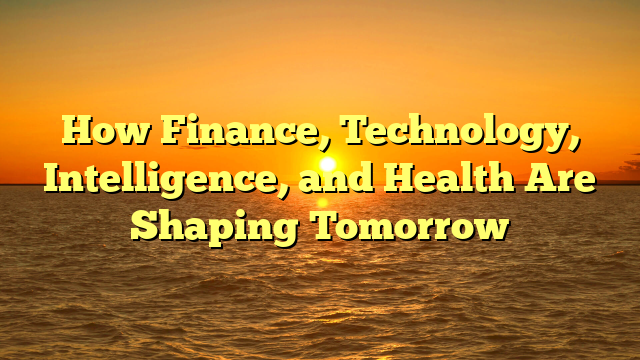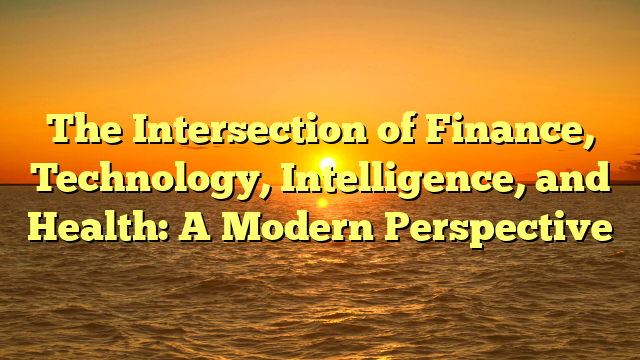
In the 21st century, we are witnessing a profound shift propelled by the integration of four powerful forces: financial innovation, technology, cognitive science, and healthcare innovation. These sectors not only evolve individually, but they intertwine in new ways that reshape the human experience.
—
Finance: The Lifeblood of Innovation
Gone are the days when finance was merely banking and economic reports. Now, it involves fintech, blockchain systems, and automated investment strategies.
Thanks to blockchain, users may access financial systems with no need for middlemen, creating the era of DeFi. Applications like Ethereum, Solana, and Avalanche allow people to interact with lending, borrowing, and investing with full transparency.
What’s more, Machine learning is transforming risk assessment, offering real-time insights previously impossible.
—
Technology: The Great Disruptor
Fueling this shift is technology. From AI to quantum computing, advancements are reshaping society at large.
Smart devices analyze habits while also collecting critical insights. This data is then processed by machine learning algorithms, allowing users to optimize their health in real-time.
Furthermore, tech is reshaping the educational landscape. AI-powered tutors are fostering creativity through adaptive learning systems.
—
Intelligence: The Brain’s Role in the Future
The concept of intelligence is elevated via technological tools. pragma123 slot demo -computer interfaces is merging mental processes and digital logic.
On another front, AI itself is developing a form of intelligent systems, challenging our understanding of ethics, autonomy, and consciousness.
Learning paradigms are shifting to include digital literacy, critical thinking, and resilience, preparing youth for an AI-integrated world.
—
Health: The New Frontier of Personal Empowerment
Perhaps the most impactful change is in the realm of medicine. From personalized genomics to robotic surgery, healthcare is becoming more predictive.
Wearables offer 24/7 biometric feedback, allowing for proactive health management. Artificial Intelligence in healthcare can suggest treatments with greater speed, reducing the burden on doctors.
On the medical front, personalized medicine allows treatment plans to be individualized for each person, improving quality of life.
—
Unified Progress: The Combined Power
The uniqueness of our time lies in the combined effect of these four domains. Take this instance: a financial platform might use real-time analytics to fund healthcare ventures, reaching underserved populations in real-time.
Similarly, genetic profiles collected via wearables can be used to optimize financial planning, bridging health and finance.
Intelligence—both emotional and analytical— will shape destiny in this complex, interconnected world.
—
Conclusion: Embracing the Future Boldly
In summary, our collective progress is tied to integrating finance, technology, intelligence, and health. When combined, they unlock the potential for a future full of opportunity and innovation.
The question is not whether we will adapt—but how wisely, ethically, and inclusively we do so.




